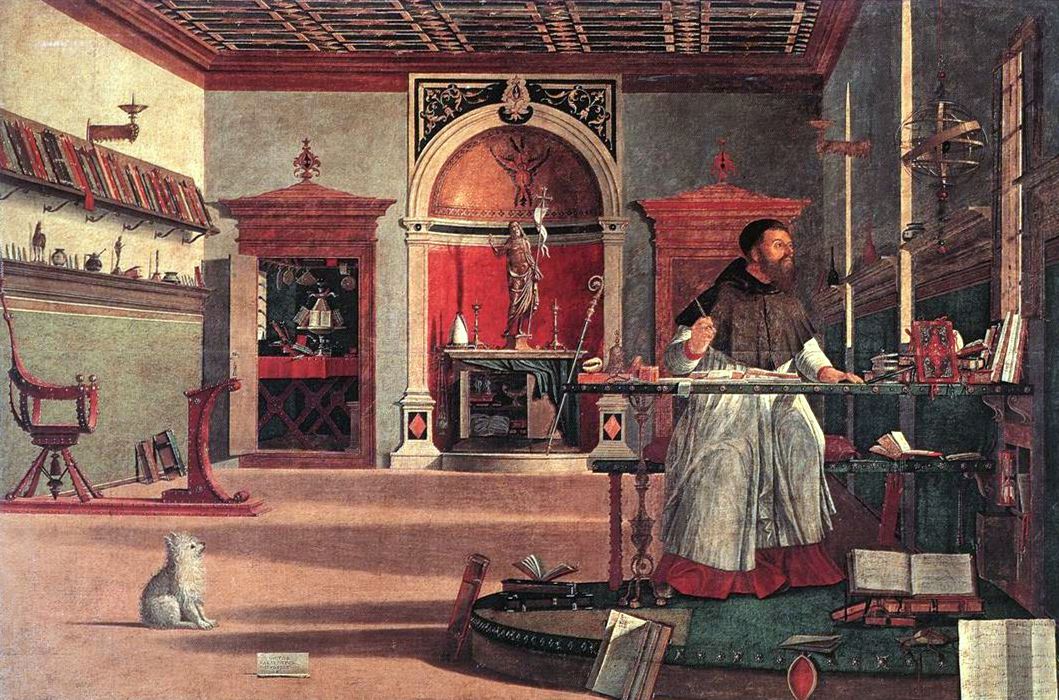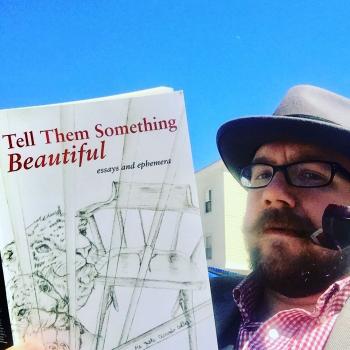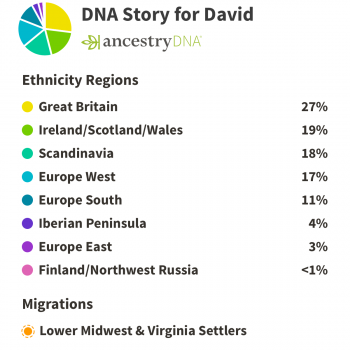David Russell Mosley

Ordinary Time
26 September 2015
The Edge of Elfland
Hudson, New Hampshire
Dear Friends and Family,
This morning when I woke up, I grabbed my phone (not the best thing to go for first in the morning, but I’m working on it) and as I scrolled through my twitter feed I came across this article by Mere Orthodoxy (and Mere Fidelity) contributor Andrew Wilson: “Why Being a Pastor-Scholar Is Nearly Impossible: Three tensions of combining pastoral and academic work.” I decided to give it a read. As some of you may know, I’ve made some suggestions of my own on how the theologian might be engaged in the work of his or her church.
Wilson suggest that being a pastor-scholar is nigh impossible (hence the title). I agree, as Wilson also notes, that doing anything and being a pastor is difficult. Even if one is only paid part-time for being a pastor, it is always full-time work. Yet, in my gut, I feel as though the pastor-scholar ought not to be quite the same. After all, the kind of scholarship Wilson has in mind is biblical/theological. If any other vocation ought to meld well with the pastorate, or priesthood, it ought to be that of the biblical scholar and/or theologian. Nevertheless, Wilson is right that often the aims of these two vocations can be different, or at least the arenas are different which often leads to different emphases making this combination slightly more difficult. That said, I think Wilson makes a few mistakes.
The first mistake is that nearly all of Wilson’s examples, as well as his entire article, presupposes one specific kind of scholarship, namely biblical studies, and one specific kind of pastorate, namely Protestant and, frankly, Reformed (with a few exceptions). Wilson then goes on to list three tensions that come from trying to combine this particular kind of scholarship with this particular kind of pastorate. I’ll get to the tensions in a moment, but I want to address first the narrowness of his purview.
I shouldn’t blame Wilson too much, really. After all, he is himself getting a PhD in biblical studies and is a member of a Reformed church. It stands to reason that many of his examples would come from one or both of these areas. Nevertheless, by not looking outside of them, he both generalizes in a way that will be unhelpful to readers such as myself (who are scholars attempting to be active in the church, if not ordained, but aren’t in biblical studies and/or aren’t Reformed or Protestant), and he misses opportunities to perhaps find better ways of combining pastor and scholar. For instance, Wilson neglects the fact that most of the great theologians from the first 1600 years (even in the reformed traditions) were almost always ordained clergy, many of them were bishops. Augustine likely preached almost daily and yet also wrote numerous books and letters; Aquinas was also a regular preacher (since he belonged to the ordo praedicatorum or Order of the Preachers, the Dominicans) and yet also wrote the Summa Theologiae, the Summa Gentiles, as well as commentaries on various biblical books and works of Aristotle and others. They and others like them found time to be both pastors and scholars. Perhaps, however, you will say that these are ancient and medieval examples when scholarship at least, if not also the pastorate/priesthood, were different. Then I could also draw your attention to figures such as Pope St John Paul II, Pope Emeritus Benedict XVI, Henri de Lubac, Hans Urs von Balthasar, even people like Simon Oliver and Alison Milbank (professors of mine at the University of Nottingham, and not alone among our ordained staff). Now perhaps this points to a potential inherent difference between more Protestant ways of understanding the pastorate/priesthood and more Catholic ways of understanding it. Even so, if such a distinction exists, it might be worthwhile to investigate it to see how the other side treats similar problems.
Now, to the tensions, wherein I’ll also show some of the issues by focusing primarily on biblical scholars (versus other theologians). The first tension is “The Specialist-Generalist Tension.” The issue, argues Wilson, is that the scholar is called to be a specialist of a particular subject and not to stray from it, whereas the pastor must be a generalist since “that’s not my field” is not an adequate response to a parishioner who has questions. There is some truth to this, but it seems more prevalent in biblical studies. As Wilson notes, “Pauline scholars often give an apologetic cough before opining on Jesus, let alone on the Qumran Hodayot (psalms of thanksgiving), on the redaction (editing process) of the Pentateuch, or on philosophical views like Nominalism.” This level of specialization is, I think, less common in other theological circles. For instance, I wrote my dissertation on deification and human creativity, but I am not limited to talk, even authoritatively, on only those two subjects since I have read and done other work on other subjects. My point is that what might keep a Pauline scholar from entering into historical Jesus studies wouldn’t keep someone who works on the doctrine of Creation from talking about the Atonement. This largely, I think, has to do with the fact that Biblical Studies is more a subset of History/Sociology in the academic world than it is of Theology, properly speaking. But I digress.
The second tension is “The Practical-Theoretical Tension.” It is best, perhaps, to quote the example Wilson gives here:
Place Bible scholars like Michael Gorman, John Barclay, and N. T. Wright at a conference table and ask them to talk about the topic of peace in Paul’s epistles—as I remember happening at the British New Testament Conference two years ago—and you’ll have hours of stimulating discussion. But ask any of them about how to promote peace in the Middle East today, and the conversation turns eerily quiet. For scholars, praxis is the tail, research is the dog, and the former is not meant to wag the latter.
Here again, I feel as though I see a problem with focusing only on biblical scholars. Other theologians (certainly not all), often see their work as being meant to have some kind of practical benefit for the church (I believe this is true for many biblical scholars as well). For instance, in my dissertation I argue that humans creating things, like works of poetry or fantasy, can be aids in our deification, as can the consumption of those things. In other words, I argue that it’s good for people to read and write works of poetry and fantasy (as well as to create other beautiful things). This isn’t simply theoretical for me, I write works of fiction! Now again, I think some of the problems come from the fact that much of biblical studies is primarily history, trying to understand exactly what was happening when it happened and other related issues. These need not have any effect on one’s parishioners. What does it matter, for instance, to the average Christian, if Paul went to Spain or if he is the author of Hebrews? Now other theologians certainly have these issues as well. For instance, not everyone is called to write fiction (possibly not even me, despite my trying). Nor is it important for everyone to come to the same kinds of understanding that I have about certain theological issues. But my work is always meant to be in service of God’s glory and the Church, even if it not every aspect of it would be beneficial to the members of my church. The point I’m trying to make is this: if your scholarship is purely theoretical, then it might not be worth doing. If it cannot aid the Church in anyway then there might be a problem.
The final tension is “The University-Church Tension.” Here I mostly agree with Wilson. The Church and the University are two different, albeit related, entities. Even the Christian University is not the same as the local church (or even the universal Church). So of course how the pastor-scholar acts in one will likely be different from how she acts in the other.
Wilson does a good job to draw to our attention that there are difficulties or paradoxical tensions in being a scholar and a pastor. It will never be easy to try to be both at the same time, especially not as he has defined the terms. That said, I think Wilson’s focus on biblical scholars and Protestant/Reformed pastors is far too narrow. There are other kinds of scholars and pastors, as Wilson well knows. If there are tensions, it might be good to see how others in different fields or denominations handle them. And it is dangerous to forget to examine how the pastor-scholars before us, centuries before us, sought to combine these two vocations. There might be something worth adopting out there to ease some of these tensions, while likely creating others.
Sincerely,
David











